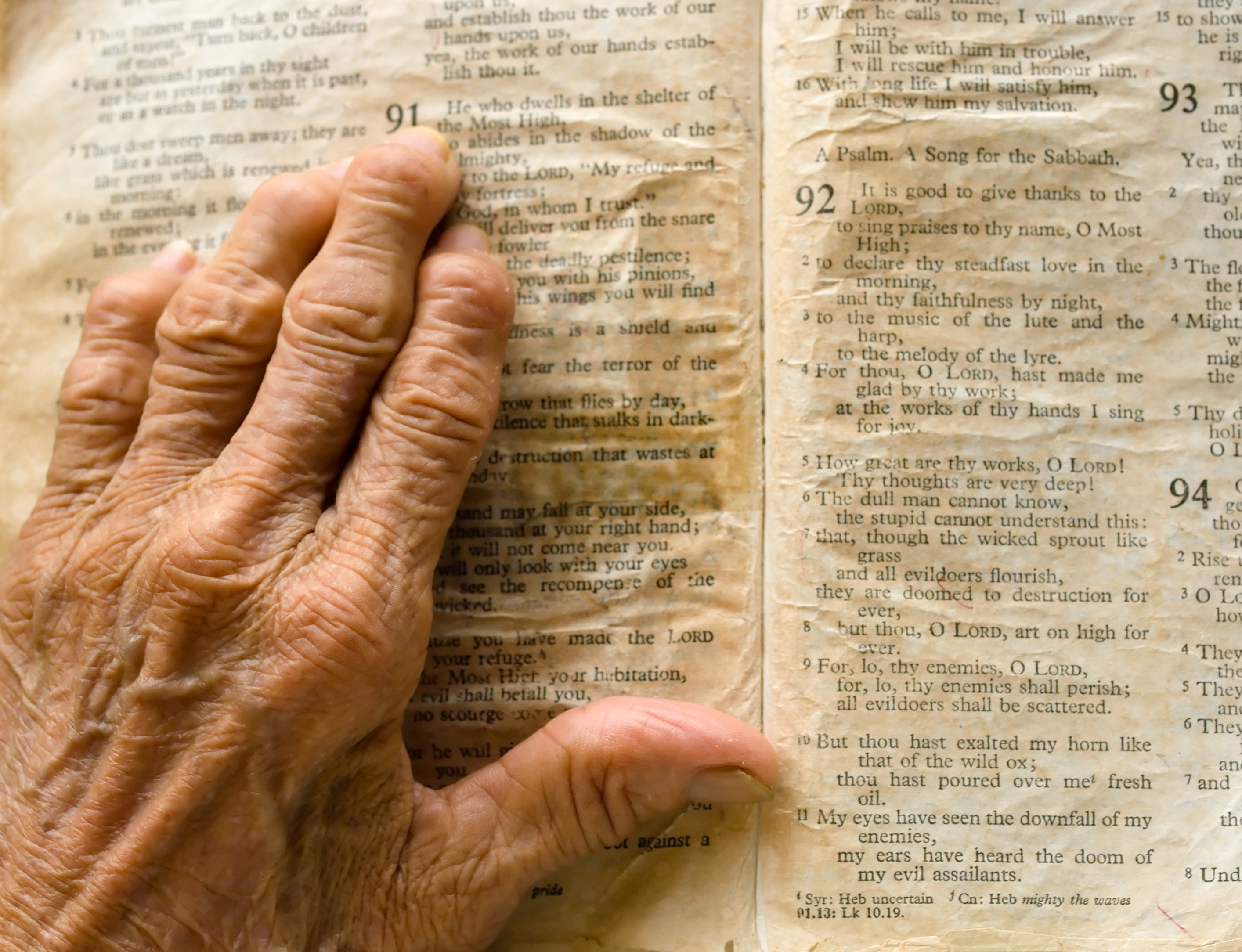Zechariah - Part Three: Chapters 7-11

Zechariah chapters 7 and 8
Most prominent phrase: "Thus saith the Lord of Hosts."
The Third Message:
The visions outlined in chapters 3 to 6 have ceased. Prophecy is about to begin.
It often takes some time for worthwhile exercises to develop. We should not, therefore, be surprised that there was a time gap of about two years between the last vision in chapter 6 and the beginning of prophecy in chapter 7.
Deputation from Bethel (7:1-3)
A query arose with the arrival of a deputation form Bethel. It was this: Is it necessary (indeed, is it right?) to continue to observe fasts which had been instituted by the nation’s people and priests, and not by God Himself?
Fast 1: Fast of the fifth month
This commemorated the Destruction of Solomon’s Temple (2 Kings 25:8-10 and Jeremiah 52:12-14).
Fast 2: Fast of the seventh month.
This commemorated the Assassination of Gedaliah, the appointed governor of the land, and of those who were not carried away into Babylon (read Jeremiah 41:1-2). The deputation only raised a query about the fast in the fifth month, but the prophet dealt with both in his fourfold answer.
First answer (7:4-7)
The questioner, not the question, was answered. "Get right, and keep right, with God." Secondly, "Who is the object of your fast? Are you doing it for Me, or for yourselves?"
Outwardly correct ceremonies are no real indication in themselves of the heart being right before God. Separation of activity, without separation of heart, is of no avail before God (Isaiah 29:13). Verse 7 of our chapter says, "Listen to the word of the Lord through the former prophets."
Second answer (7:8-14)
Having got right with God, by obeying His Word, the next thing to do is-be right manward.
True religion is essentially practical (James 1:27). What we are inside shows on the outside. You can only judge what’s going on inside my heart by what you can see in my life, morally, not in merely ceremonial activities, but in practical godliness. The outcome of being right Godward (v. 4-7) is to be right manward (v. 9-10).
"Your fathers hardened their hearts against the voice of the prophets and had to be disciplined."
The trend follows the usual cycle:
5:3 Wrong Godward, wrong manward.
7:9-10 The warning message of the former prophets.
7:11-12 Warning disregarded.
7:13-14 Disciplinary judgments, sanctions applied.
The pleasant land (7:14)
The land of Israel should be the center and focal point of the earth’s peace, plenty, and prosperity. Instead, it is the focal point of the world’s bitterness, turmoil and unrest. What a travesty!
Third answer (8:1-19)
God has not changed His mind. The blessing of the land will come. Jehovah, the God of Israel, has committed Himself. It shall come to pass.
Read: Isaiah 14:24-27; 46:9-11
His indignation has been expressed against His own people.
His fury will be unleashed against the Gentile nations who have dared to touch Israel, the apple of His eye.
Marks of the blessing of God on the godly in Israel
(long promised in the Law).
- 4 longevity.
- 5 lots of children, many generations.
- 7-8 dwelling in the Land.
- 12 prosperity (the land fruitful).
- 13 blessing to other nations.
- 16-17 righteous living (now - in the light of what the prophet has said about the future).
- 19 fasting turned to feasting.
Fourth answer (8:20-23)
Nations shall be glad to come to Israel and Jerusalem.
Millennial conditions (which have certainly not applied for the last three thousand years since the days of Solomon, whose reign was itself a preview of millennial glory).
Jerusalem will be the capital city centre of:
World government Psalm 72; Psalm 9:8
Teaching Micah 4:2
Worship Jeremiah 3:17; Zechariah 14:16
"Behold thy King cometh unto thee" (9-11)
Read: Chapter 9:1-17; 10:1-12; 11:1-17
It may well be that some of the prophecies of these chapters have already had a partial fulfillment. We should not be surprised at that. "Coming events cast their shadow before them." But a complete and final fulfillment has not yet occurred. Some of the prophecies have had no answer at all as yet, and await the final climax of God’s dealings on earth.
- God’s vengeance upon the Gentile nations and its accomplishment (9:1-17).
The LORD will defend His people (9:1-8)
The cities mentioned in the opening verses were rivals to the preeminence of Jerusalem. That will not be tolerated. Jerusalem must be supreme.
Some of these statements are mirrored in the intermediate history of the nation of Israel, and Judah in particular. Examination of secular history will confirm that. Better still, and quicker: consult respected Bible expositors you have learned to trust. But, these partial fulfillments all look on to the LORD’s final deliverance of His beloved people and their establishment in the "pleasant land."
Verse 8
The LORD takes account of the (largely) rebuilt Temple, the result of the labors of the restored remnant.
How will all this be brought about? (9:9-10)
The Coming of the King will resolve everything.
Verse 9
The presentation of the One in Whom alone Salvation will be found.
Title (official): King
Character as such (moral): Just; having salvation.
Personal and Moral Character: Lowly, riding on an ass…lowly in His Person and in His approach.
Only that which is personal and moral and came out in His first advent is quoted in Matthew 21:5.
The result of the Second Advent (9:10-17)
Dramatic deliverance (vv. 10-16)
v.10 No more war in Israel, particularly Jerusalem, but universal peace and dominion, with Israel
and Jerusalem the hub.
v.11 The deliverance by power is in virtue of and depends upon their redemption by blood.
| Cf: | Exodus 12 Passover Redemption by blood |
>>> | Exodus 14 Red Sea Deliverance by power |
The redemption by blood is the deeper work (before God) and is the basis of the deliverance (from men) by power. This covenant will be the outcome of grace and therefore new (Jeremiah 31).
v.12 In the meantime, they are shut up to hope.
v.17 Corn for the young men: Male concept >>> objective truth >>> eating >>> feeding on Christ (John 6).
New wine for the maids: Female concept >>> subjective truth >>> drinking >>> drinking of one Spirit (1 Corinthians 12:13).
What sustains the Christian believer now will sustain Israel in the world to come. It will be continuous and characteristic for them then as it is for us now.
- Blessing enjoyed by Israel restored to the pleasant land (10:1-12)
The Plan (10:1-3)
The LORD shall visit His flock for restoration and make them overcomers as having all strength in Himself. All Judah (the southern kingdom) and Israel (Ephraim/Joseph) (the northern kingdom) shall be included in the blessing. Hindrances shall be removed and the pride of their enemies will be broken down. He will regather His people to the pleasant land and strengthen them for Himself.
The Executor of the plan (10:4)
Who will effect this? Who will bring it to pass? Messiah!
v.4 gives a terse summary of the character and mission of Messiah.a) Cornerstone
1) Foundation (Isaiah 28:16).
2) Bond of union between two walls.
b) NailTent peg? No! Internal peg for bearing all burdens and treasures. One capable of bearing all burdens, but also full of compassion, and bearing the glory (Isaiah 22:24; Zechariah 6:13).
c) Battle bow Warrior King.Subduing, destroying all enemies of God and of His people
(Isaiah 63; 2 Thessalonians 1; Revelation 19).
d) Oppressor Exactor, despotic, autocratic ruler.Head of gold (Daniel 5:18-19; Acts 17:31).
The outworking of the plan (10:12)
As His representatives, they shall walk up and down, in His Name, dispensing blessing amongst the Nations.
- The solemn consequences of the rejection of Messiah (11:1-17)
The grace of the LORD being refused has resulted in the people being subjugated to Gentile rule. Their own shepherds do not pity them. The LORD raises up the True Shepherd, Who feeds the remnant. The rejection of the Messiah in His life and ministry made it impossible to gather the peoples (nations) together (Genesis 49:10) so the stave Beauty had to be broken. The rejection of the Messiah in His death made it impossible for the time being to bring together all Israel (that is, the two and the ten to make the twelve). The church period fills the long gap between verses 14 and 15.
Verse 15 presents the Foolish, Idol, or False Shepherd, the Antichrist, whose character is the opposite to the True Shepherd.
Cf v 15-17 and John 5:43 with John 10:3-4, 7, 9-11, 14-15.
Cf 1 John 2. 22; 2 John 7 with John 10:1, 5, 8, 10a, 12-13.
The judgment of God will fall on Antichrist as we learn in Revelation 19:20. Not a happy consideration, but a necessary precursor to chapter 12.
The Fourth Message:
These prophecies (in chapters 9 to 11) have had a partial but not yet a full and complete fulfillment (see chapter 9:8).
The prophecies (chapters 9 to 14) are not in chronological order.
9:9 The Coming of the King has only partially been fulfilled.
11:12-13 Betrayal and paying of the price.
11:7-11 The nation scattered.
9:8 The victories of the King.
9:10-17 The program of the King.
This opens the door to chapters 12-14.





